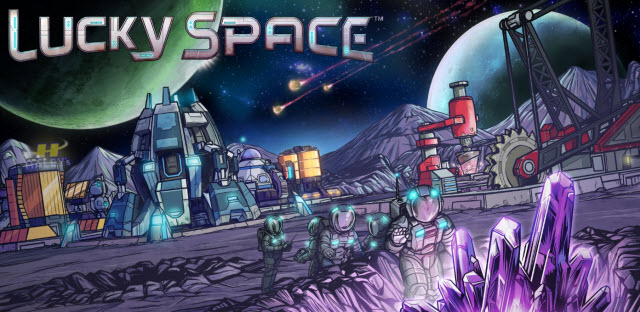
A Bit Lucky, a social gaming firm that is shooting to make high-end Facebook games, is launching its second game today, called Lucky Space. The game is in the simulation and strategy category on Facebook and has players build a space colony in a sci-fi universe. If it turns out to be a hit, A Bit Lucky can consider itself a real player in the high-stakes social gaming market.
A Bit Lucky already has a good track record.
Lucky Train was a big hit among young males, boys (who no doubt played on their parents’ Facebook accounts) and hardcore gamers. Lucky Space is a similar title, sort of like StarCraft, blending a lot of complexity with an easy-to-use interface and not so much fighting.
AI Weekly
The must-read newsletter for AI and Big Data industry written by Khari Johnson, Kyle Wiggers, and Seth Colaner.
Included with VentureBeat Insider and VentureBeat VIP memberships.
Lucky Space is a social game, where you can help your friends build their own colonies and you can visit their creations. The game allows you to build out your planetary colony, but it also prompts you to go on missions in order to advance the larger storyline. Players can uncover the mysteries of extraterrestrial civilizations and develop their colonies into self-sustaining habitats.
They can mine for resources, explore new terrain, and defend their colonies from cosmic threats such as meteors. For instance, you can build a missile turret to shoot down meteors.
The game world is hidden at first and you have to explore it little by little. You can check to see how well you are doing compared to your friends by examining details such as how many resources they collect per hour. Some resources are rare, and you have to collect a bunch of items in order to build some of your structures.
A Bit Lucky’s games are free-to-play, where users can play for free and pay real money for virtual goods. Like other Facebook game makers, the company focuses on developing communities, learning through iteration, fast development cycles, analytics and feedback. The company has learned from early testing that players usually play the game for 25 minutes the very first time they play.
[aditude-amp id="medium1" targeting='{"env":"staging","page_type":"article","post_id":335355,"post_type":"story","post_chan":"none","tags":null,"ai":false,"category":"none","all_categories":"business,games,","session":"B"}']
Descamps said he believes there is still room for a lot of different kinds of games on Facebook, just as Facebook game evangelist Sean Ryan has argued. A Bit Lucky is trying to make games that don’t compete head-on with Facebook leaders such as Zynga. Rivals include Kabam and Kixeye.
“We see tons of growth ahead, if you focus on innovation, new game play, new genres and better quality,” Descamps said.
VentureBeat's mission is to be a digital town square for technical decision-makers to gain knowledge about transformative enterprise technology and transact. Learn More
